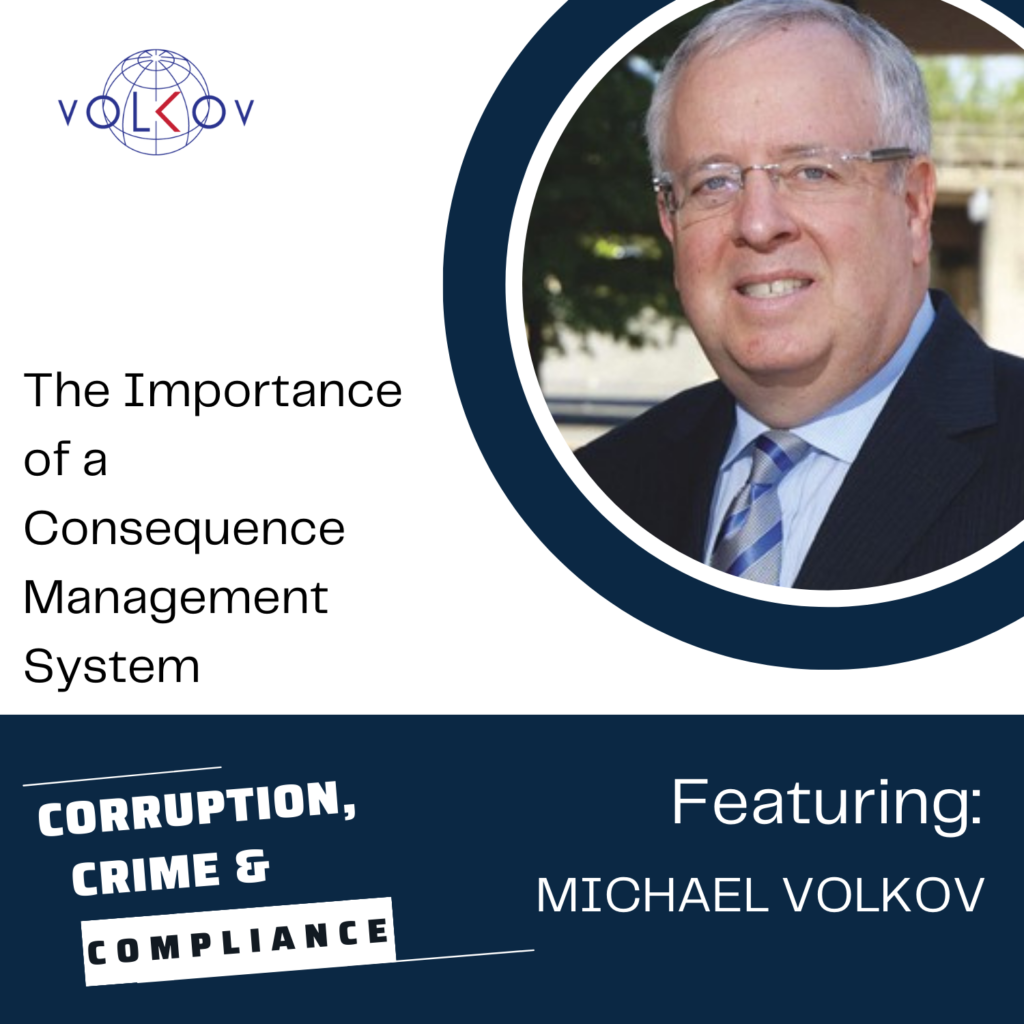
Transparency, ethics, and compliance are more than just corporate buzzwords; they’re foundational to building trust in today’s global organizations. Consequence management systems encompass elements like transparency, robust employee reporting, protective measures for whistleblowers, and effective internal investigations. These are all essential for maintaining organizational justice, trust, and integrity. In this episode of Corruption, Crime and Compliance, Michael Volkov underscores the value of collecting and analyzing employee reports, the pivotal role of Chief Compliance Officers, and the integration of compliance compensation with consequence management.
You’ll hear Michael talk about:
- Global companies now recognize the significance of robust consequence management systems, which encompass vital processes from internal investigations to disciplinary actions. A pivotal aspect of these systems is transparency, especially when designing and implementing employee reporting.
- When it comes to effective employee reporting, a system is more than just a hotline; it involves tracking and addressing concerns in real-time. To foster trust, such systems must operate promptly, fairly, and consistently, ensuring that reporters are protected against obstruction and/or retaliation.
- Key components of an effective reporting system include:
- Clear internal communication, which ensures employees feel heard.
- Foundational support, which bolsters efficiency.
- Collated reports from diverse sources, which offers insights into the company’s culture and potential risks.
- Transparency and consistency, as sporadic disclosure can negatively influence employees’ perceptions of a company’s intentions.
- A CCO’s commitment is reflected when issues are investigated and addressed swiftly and justly. They play a crucial role in collecting and analyzing employee reporting data, as well as educating senior management and boards on the significance of employee reports.
- Companies need to establish written protocols for internal investigations to ensure that they are conducted fairly and impartially. These protocols should outline the steps that will be taken during an investigation, as well as the rights of the employees involved. The protection of employees and whistleblowers is paramount.
- An internal oversight committee should be responsible for overseeing internal investigations. Regular reviews ensure that procedures are followed consistently and that there is a focus on quality. Additionally, all investigations should be properly documented and resolved in order to maintain integrity.
- Compliance and consequence management systems should work together to meet the expectations of the DOJ, promoting corporate citizenship and financial success.
KEY QUOTES
“A true employee reporting system includes reports to supervisors, walk-ins to human resources, walk-ins to legal and compliance, and an automated reporting system.” – Michael Volkov
“The real question is whether the company backs up its statement through specific actions. This cannot be accomplished through words, but really only through deeds, through actions. All too often, companies get ahead of themselves. They make these broad pronouncements. They sound good, they pat each other on the back, and they don’t build the essential foundations and infrastructure needed to establish an effective employee reporting system.” – Michael Volkov
“As a basic initial requirement, every company should adopt a written internal investigation protocol that is published internally, promoted internally to demonstrate a commitment to transparency, and those protocols and procedures should be followed to the T.” – Michael Volkov
Resources:


